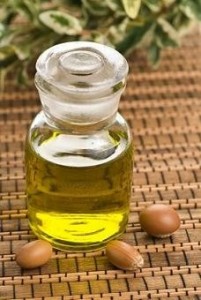
More evidence that low-calorie sweeteners are bad for your health
Studies show that artificial sweeteners can raise the risk of hypertension, metabolic syndrome, type 2 diabetes and heart disease, including stroke.

Argan oil is the health and beauty sensation that everyone is talking about. But does it really work and how can you get the best out of it?
This rich, nourishing oil produced from the kernels inside the fruits of the argan tree (Argania spinosa) and is one of the rarest and most expensive oils in the world.
The origins of the tree can be traced back millions of years to the Tertiary period. There was a time when it grew all over North Africa and parts of southern Europe. But today the semi-desert Sous valley of south western Morocco is the only region in the world where this tree grows. In 1999, in acknowledgement of the threat to this ancient tree, the argan was protected as a Unesco Biosphere Heritage plant.
Known by the Moroccan Berber community as the “Tree of Life”, argan tree groves can survive for anywhere from 125 to 450 years, making them a valuable inheritance for future generations. Today it plays a crucial role in the rural and urban economy of Morocco, especially for local women and in recognition of their value to the community Moroccan farmers now beginning to plant argan trees again.
Argan oil has a similar fat content to olive oil and is used for similar purposes. Commercial argan oil is a lot more expensive than olive oil. The argan tree however lives longer than the Olive tree and requires no cultivation.
Traditionally Moroccan Berbers would collect undigested argan pits from the waste of goats, which would climb the trees to eat the fruit.
The pits were then ground and pressed to make the nutty oil used in cooking and cosmetics. Today, the nuts harvested by hand directly from the tree and the oil is hand or machine pressed.
Health and beauty benefits
There are two main grades of argan oil:
Cosmetic grade argan oil is cold pressed from the raw kernels. It has a light texture and virtually no aroma. Even so some manufacturers opt for a deodorised version of the raw oil which (through the use of steam or chemicals) strips the oil of many of its health benefits.
Culinary grade argan oil is pressed from kernels that have been lightly and briefly roasted. This gives the oil a characteristic nutty aroma that adds flavour to dishes like couscous, but which makes it less attractive to use on the skin. Studies show that roasting the kernels does not remove their healthful properties, which is why consuming argan oil has been associated with benefits such as helping to lower cholesterol and to prevent cancers, for instance of the prostate, cardiovascular disease and diabetes.
Get the most out of it
Because it is comprised of extremely high levels sterols, fatty acids and polyphenols as well as extremely high levels of vitamin E, argan oil is an effective antioxidant, great for protecting skin from the harmful effects of free radicals. It is also rich in saponins which have a softening effect on the skin.
As part of your natural beauty routine, argan oil has multiple uses. Here are just a few:
Face Moisturiser Argan oil is a ‘dry’ oil – which means it is light and absorbs quickly. With damp hands, try massaging a few drops of argan oil directly onto your face and neck. You can also enrich your regular skincare products by mixing in a couple of drops on your palms before applying.
Great for oily skin In one study a twice daily facial application of an argan oil-containing cream for four weeks revealed significantly reduced greasiness and improved appearance of oily facial skin.
Shiny hair You can use argan oil as a leave in conditioner for your hair. After washing and towelling dry, rub a few drops on your fingertips and run through the hair, concentrating on the ends, to tame frizz and add shine. For a more intensive treatment apply generously to your hair at night, wrap in a turban and leave overnight. When you wash your hair in the morning it will be super soft.
Healthy nails As a quick conditioner rub a few drops of argan oil into your cuticles and nails to help soften and protect them.
Soft lips Before going to bed, apply sparingly to lips, to air healing and repair overnight.
Happy feet Use as an overnight treatment for cracked heels. Rub a good amount into your feet paying special attention to rough skin areas. Cover with light socks and rinse in the morning.
Bathtime bliss Mix a tbl of argan oil and a tbl of milk (to help it disperse) into your bathwater for a skin softening soak. Pat, rather than rub yourself dry. Or you can apply as a body oil directly after your bath, to help lock in moisture.

Please subscribe me to your newsletter mailing list. I have read the
privacy statement